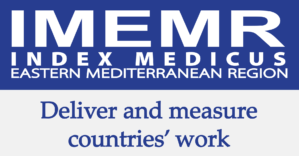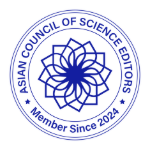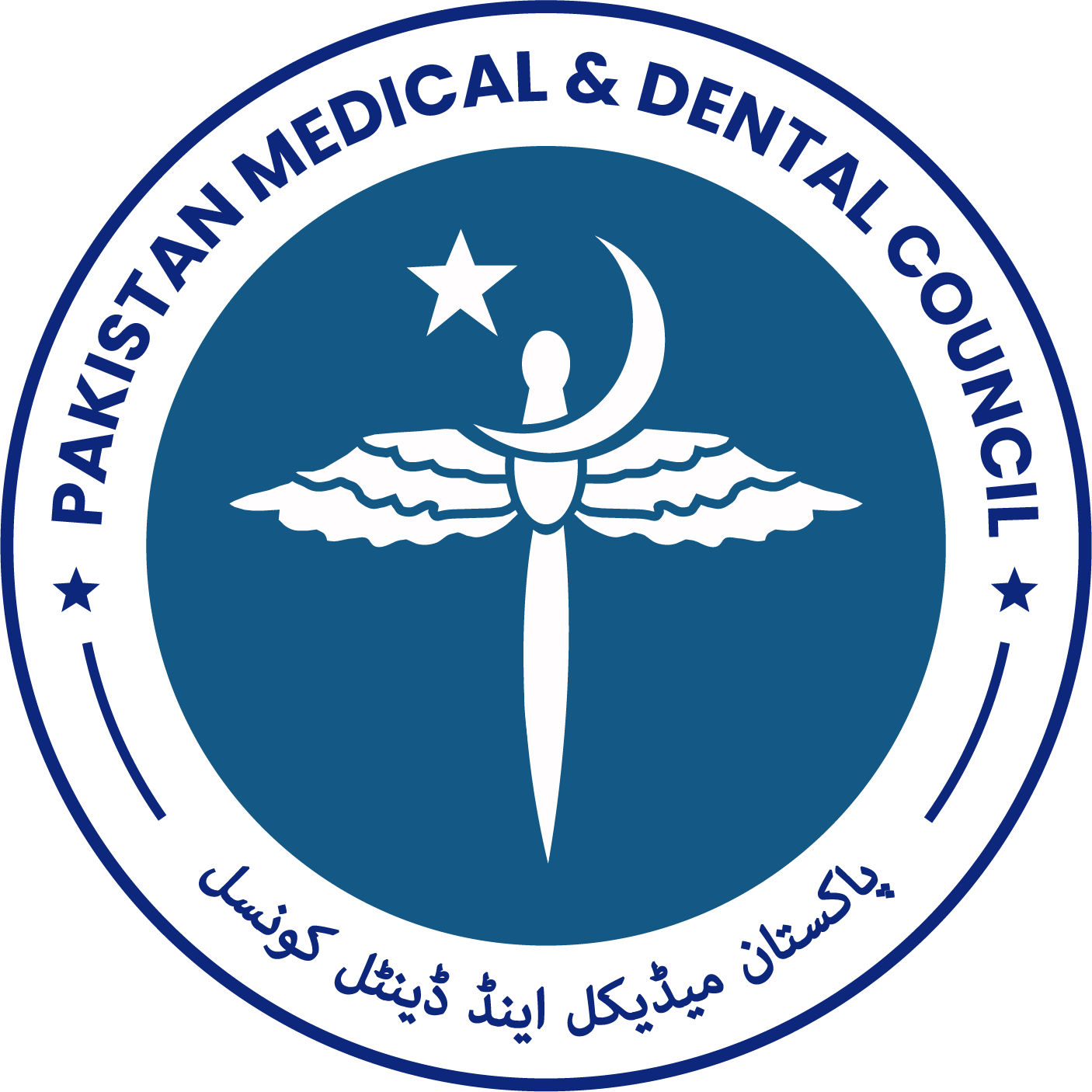Self-medication practices in mothers with children under 5 years of age visiting tertiary care hospital
DOI:
https://doi.org/10.53685/jshmdc.v5i2.180Keywords:
Self-medication, Awareness, Mothers, ChildrenAbstract
Background: Self-medication refers to the practice of individuals using medications to treat their own conditions. Improper utilization of medications without a prescription results in undesirable side effects, detrimental drug interactions, and the emergence of antibiotic resistance, which is becoming a growing problem in developing nations due to the rising burden of infectious diseases.
Objective: To find out the frequency of self-medication practices and the factors associated with it among mothers with children under 5 years of age.
Methods: This descriptive cross-sectional study was conducted at the outpatient department of pediatrics, Holy Family Hospital, Rawalpindi, Pakistan from March 2023 to June 2023. A total of 267 mothers with children younger than five were included in our study. Informed consent was obtained from mothers and maternal socio-demographic characteristics, self-medication knowledge, practice, motivation, and attitude were all documented. The data was analyzed using SPSS version 26. The association between self-medication and other factors was analyzed using Chi Square and Fisher’s Exact tests. A p-value < 0.05 was considered statistically significant.
Results: Self-medication was practiced by 94.4% of the mothers.. There was an association between maternal education level and self-medication practices (p=0.000). No association was found between employment status and self-medication practices (p=0.336). Fever was the most common illness for which mothers self-medicated their children (p=0.002).
Conclusion: Self-medication is common among mothers of children under 5 years of age and is associated with maternal education level, with the highest frequency among the uneducated mothers. Maternal awareness and knowledge regarding the hazards of self-medication is of profound significance.
References
Hashemzaei M, Afshari M, Koohkan Z, Bazi A, Rezaee R, Tabrizian K. Knowledge, attitude, and practice of pharmacy and medical students regarding self-medication, a study in Zabol university of medical sciences; Sistan and Baluchestan province in south-east of Iran. BMC Med Edu. 2021; 21: 49. doi: 10.1186/s12909-020-02374-0
Akande-Sholabi W, Ajamu AT, Adisa R. Prevalence, knowledge and perception of self-medication practice among undergraduate healthcare students. J of Pharm Policy & Prac. 2021; 14(1): 49. doi: 10.1186/s40545-021-00331-w
Mathias EG, D'souza A, Prabhu S. Self-medication practices among the adolescent population of South Karnataka, India. J Environ Public Health. 2020; 2020. doi: 10.1155/2020/902 1819.
Niriayo YL, Mohammed K, Asgedom SW, Demoz GT, Wahdey S, Gidey K. Self-medication practice and contributing factors among pregnant women. PLoS One. 2021; 16(5): e0251725. doi: 10.1371/journal.pone.0251725.
Ruiz ME. Risks of self-medication practices. Curr Drug Saf. 2010; 5 (4): 315-323. doi: 10.2174/157488610792245966.
Ukwishaka J, Umuhoza C, Cartledge P, McCall N. Pediatric self-medication use in Rwanda - a cross sectional study. Afr Health Sci. 2020; 20(4): 2032-2043. doi: 10.4314/ahs.v20i4.61.
Musoke D, Boynton P, Butler C, Musoke MB. Health seeking behaviour and challenges in utilising health facilities in Wakiso district, Uganda. Afr Health Sci. 2014; 14(4): 1046-1055. doi: 10.4314/ahs.v14i4.36.
Mostufa Abd Elsamad M, Abd Elaziem Mohamed A, Salah Eldin Mohamed Saleh A. Knowledge, attitude, and practices of mothers of children under five years regarding self-prescribing medication. Egypt J Health Care. 2023; 14(3). 326-341. doi: 10.21608/ejhc.2023.316264.
Naseri S, Bijari BB, Dabaghzadeh F, Dahesh T. The prevalence of self-medication in breastfeeding mothers during the COVID-19 pandemic. J Mother Child. 2022; 26(1): 58-65. doi: 10.34763/jmotherandchild.20222601.d-22-00021
Ahmed N, Ijaz S, Manzoor S, Sajjad S. Prevalence of self-medication in children under-five years by their mothers in Yogyakarta city Indonesia. J Family Med Prim Care. 2021; 10(8): 2798-2803.
Aziz MM, Masood I, Yousaf M, Saleem H, Ye D, Fang Y. Pattern of medication selling and self-medication practices: A study from Punjab, Pakistan. PLoS One. 2018; 13(3): e0194240. doi: 10.1371/journal.pone.0194240.
Demis A, Altaye BM, Emiru M, Tefera M. Prevalence of self‐medication practice and associated factors among pregnant women who attended antenatal care at public hospitals of North Shewa Zone, Amhara Region, Ethiopia. Adv Pharmacol Pharm Sci. 2024; 2024: 6668480. doi: 10.1155/2024/6668480
Zafar SN, Syed R, Waqar S, Zubairi AJ, Vaqar T, Shaikh M, et al. Self-medication amongst university students of Karachi: prevalence, knowledge and attitudes. J Pak Med Assoc. 2008; 58(4): 214-7. PMID: 18655436.
Abasaeed A, Vlcek J, Abuelkhair M, Kubena A. Self-medication with antibiotics by the community of Abu Dhabi Emirate, United Arab Emirates. J Infect Dev Ctries. 2009; 3(7): 491-497. doi: 10.3855/jidc.466.
Cruz JC, Perez CZ, Cabrera MCS, Lopez ER, Hoyos PV, Rojas Rojas D, et al. Factors associated with self-medication of antibiotics by caregivers in pediatric patients attending the emergency department: a case-control study. BMC Pediatr. 2022; 22(1): 520. doi: 10.1186/s12887-022-03572-z
Tarciuc P, Duduciuc A, Chirila SI, Herdea V, Rosu O, Varga A, et al. Assessing the Effects of Medical Information on Parental Self-Medication Behaviors for Children's Health: A Comparative Analysis. Medicina (Kaunas). 2023; 59(12): 2093. doi: 10.3390/medicina59122093
Hotham N, Hotham E. Drugs in breastfeeding. Aust Prescr. 2015; 38(5): 156-159. doi: 10.18773/austprescr.2015.056
Downloads
Published
How to Cite
Issue
Section
License
Copyright (c) 2024 Nabiha Eeman, Nehal Amir, Ayesha Nazakat

This work is licensed under a Creative Commons Attribution-NonCommercial 4.0 International License.
You are free to:
- Share — copy and redistribute the material in any medium or format
- Adapt — remix, transform, and build upon the material
- The licensor cannot revoke these freedoms as long as you follow the license terms.
Under the following terms:
-
Attribution — You must give appropriate credit, provide a link to the license, and indicate if changes were made. You may do so in any reasonable manner, but not in any way that suggests the licensor endorses you or your use.
-
Non Commercial — You may not use the material for commercial purposes.
-
No additional restrictions — You may not apply legal terms or technological measures that legally restrict others from doing anything the license permits.





















